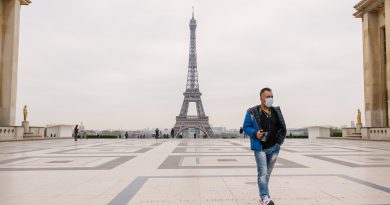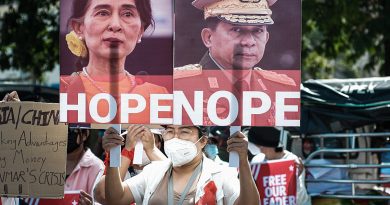With President Nearby, Explosion Kills 14 in the Philippines
By Alexandra Recupero
Staff Writer
Around 10 p.m. on September 2, an explosion left 14 people dead and more than 70 wounded at a crowded night market in Davao City, Philippines, sparking panic and much controversy.
 The blast occurred outside the Marco Polo Hotel, where President Rodrigo Duterte, who was in Davao City at the time of the blast, frequently stays and hosts political meetings. Although he was far from the site of the blast when it occurred, the explosion could be seen as a terrorist attack directed at him. Duterte was mayor of Davao City for around two decades before becoming president.
The blast occurred outside the Marco Polo Hotel, where President Rodrigo Duterte, who was in Davao City at the time of the blast, frequently stays and hosts political meetings. Although he was far from the site of the blast when it occurred, the explosion could be seen as a terrorist attack directed at him. Duterte was mayor of Davao City for around two decades before becoming president.
In the days following the attack, Duterte declared a “state of lawlessness,” saying that the Philippines “will take this as a police matter about terrorism.” The nationwide decree granted special powers to police operations, reports The Los Angeles Times.
President Duterte has frequently indicated that he intends to solve his country’s domestic and international problems with little to no foreign contribution, specifically from the United States. Three days after the bombing, while at the G20 Summit in Hangzhou, China, Duterte said of President Barack Obama: “Who does he think he is? I am no puppet. I am the president of a sovereign country and I am not answerable to anyone except the Filipino people.” According to CNN, Duterte then used derogatory words to describe his American counterpart, causing Obama to cancel a bilateral meeting planned for later in the week.
This was not the first time Duterte has made controversial remarks pertaining to the United States and terrorism. During an Eid’l Fitr celebration in July, Duterte said to an audience of hundreds: “It is not that the Middle East is exporting terrorism to America. America imported terrorism,” as reported by CNN Philippines.
At the same time, Duterte also claimed that he did not consider the Abu Sayyaf Group’s actions criminal, and that the group’s members were radicalized only because poor governance in Mindanao, the Muslim-majority southern islands of the Philippines, drove them to desperation. The group pledged allegiance to the Islamic State in 2014.
According to Duterte and Delfin N. Lorenzana, the defense secretary, Abu Sayyaf is now the primary suspect in the Davao City bombing.
According to the Sydney Morning Herald, Abu Sayyaf has up to 500 fighters, but the Davao City bombing was their first mass attack. According to The Washington Post, the group, whose name means “bearer of the sword” in Arabic, has in the past only focused on kidnapping hostages for ransom. Most recently, the group decapitated a Canadian tourist who had been taken while he was vacationing in a beach resort near Davao.



RT @EnvoyAtSHU: ISIS-linked Abu Sayyaf bombed a hotel in Davao City, killing 14 while President Duterte was nearby. https://t.co/yvUqGk41D1…
ISIS-linked Abu Sayyaf bombed a hotel in Davao City, killing 14 while President Duterte was nearby. https://t.co/yvUqGk41D1 @_lexiixo